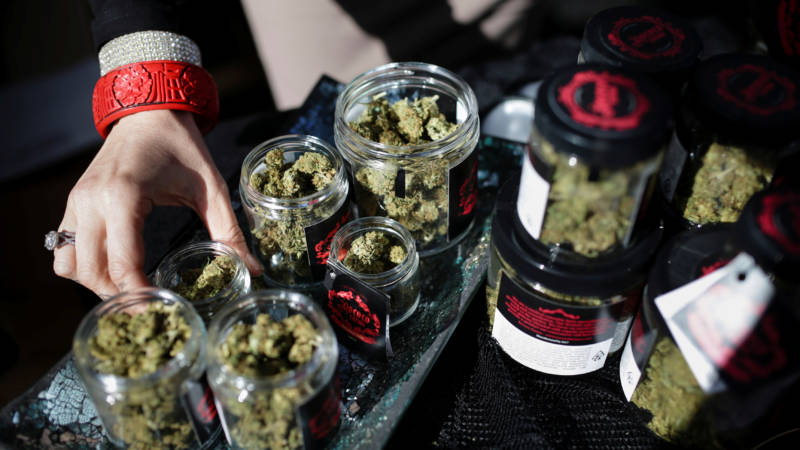California's cannabis excise tax generated only $74.2 million in the second quarter of 2019, the state says, announcing numbers that are short of projections that were set months ago. It's the latest sign that the country's largest marijuana market has struggled to take off since sales of recreational pot became legal last year.
The second-quarter figure reflected a gain over the $63.1 million excise revenue from the first three months of 2019. But earlier this year, the results prompted Gov. Gavin Newsom to revise his office's estimates of how much money the state would net from its cannabis industry.
"In January, Gov. Gavin Newsom's proposed budget forecast $355 million and $514 million in excise tax revenues for fiscal years 2019 and 2020, respectively," as member station Capital Public Radio reported.
In May, Newsom's budget lowered its expectations for the cannabis excise tax, to $288 million in the current fiscal year and to $359 million in 2020.
Compared to other states, California's legal cannabis market has stumbled rather than soared. When California moved from a loosely regulated medical marijuana system to a fully regulated retail system in 2018, it watched legal sales drop to $2.5 billion, from around $3 billion the year before.

9(MDAxOTAwOTE4MDEyMTkxMDAzNjczZDljZA004))
